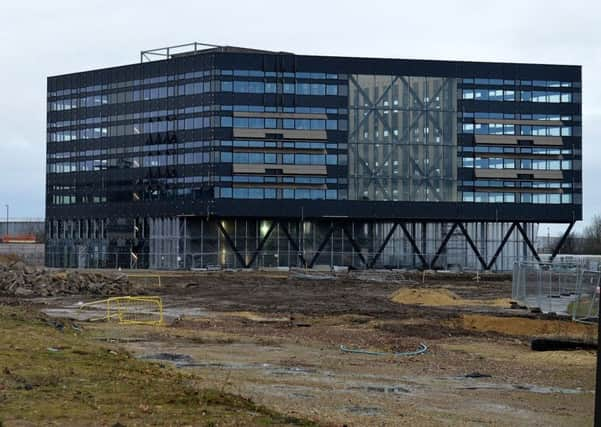Rise of the robots threatens jobs: Sunderland set to lose 29% of current posts by 2030 unless action taken, finds report


That’s the stark warning from think tank Centre for Cities as it launches its Cities Outlook report.
It says Sunderland is the second most at-risk city in the UK in terms of the proportion of jobs under threat, with 37,700 posts - 29 per cent of the city’s total - possibly lost.
Advertisement
Hide AdAdvertisement
Hide AdRelated: ‘Sunderland has strong record of attracting work’ - council chief responds to job fears reportThe group’s annual health-check on UK city economies focuses this year on the potential impact of automation and globalisation on jobs across the UK.
It says one in five existing jobs in British cities is likely to be lost over the next 12 years – 3.6million posts in total – with retail, customer service and warehouse jobs among those most under threat.
But the risk is not spread evenly across the country, with struggling cities in the North and Midlands more exposed than wealthier ones in the South.
Around 18% of jobs are under threat in the south, compared to 23% in the rest of the country.
Advertisement
Hide AdAdvertisement
Hide AdThe report says one in four existing jobs across the North East is at risk – including around 97,800 jobs in Newcastle and 43,100 in Middlesbrough.
Less than 10% of posts in most cities are in sectors predicted to grow and while new industries will create new kinds of roles, cities in the south are better placed to secure high-skilled, high-paying jobs, while those in the North and Midlands are more likely to see growth in low-skilled sectors and could fall further behind economically.
Only one in 10 jobs predicted to grow in Sunderland is a high-skilled private sector occupation, while three out of 10 are low skilled.
Centre for Cities chief executive Andrew Carter said: “Automation and globalisation will bring huge opportunities to increase prosperity and jobs, but there is also a real risk that many people and places will lose out.
Advertisement
Hide AdAdvertisement
Hide Ad“The time to act is now – national and local leaders need to ensure that people across the North East can share in the benefits these changes could offer.
“That means reforming the education system to give young people the cognitive and interpersonal skills they need to thrive in the future, and improving school standards, especially in places where jobs are most at risk.
“We also need greater investment in lifelong learning and technical education to help adults adapt to the changing labour market, and better retraining for people who lose their jobs because of these changes.
“In an ever more divided country, it’s increasingly clear that a one-size- fits-all approach from central government is inadequate to address the myriad issues that different places face.
Advertisement
Hide AdAdvertisement
Hide Ad“The challenges and opportunities ahead for Newcastle or Sunderland are very different to those for Reading and Brighton. The Government needs to give city leaders in the North East more powers and resources to tackle the issues that automation and globalisation will present, and to make the most of the benefits they will bring.”